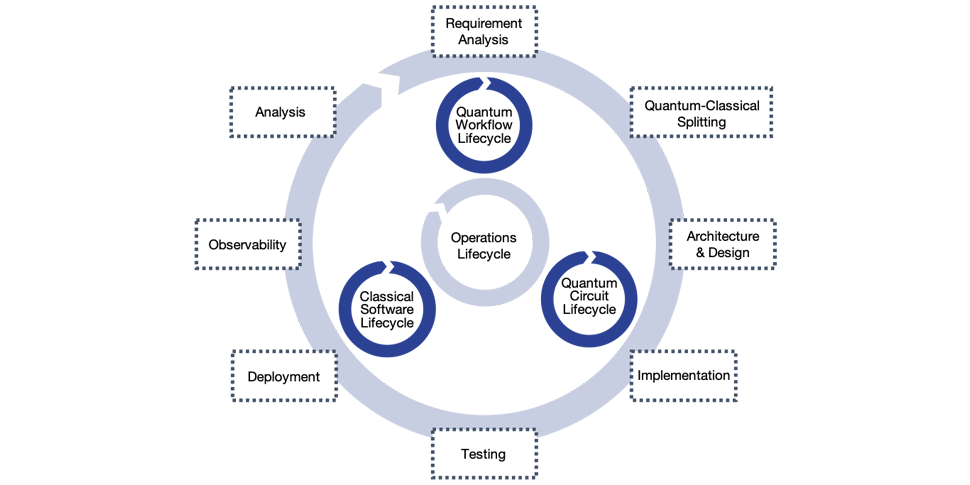
Innovations
Developing large-scale quantum applications requires teams of experts from various fields, including quantum physics, software development, and IT system management. The EniQmA project aims to simplify this process by creating methods, software components, and tools. These resources will help streamline the development of quantum applications and make them more accessible for industrial use. To ensure their effectiveness, these tools and workflows are tested and evaluated within our real-world use cases.

Solutions
Several new techniques, such as the implementation of Warm Starting and extensions of existing variational quantum algorithms, are being developed as part of hybrid applications. A tool for comparing classical and quantum-based components for hybrid applications is provided, and further benchmarking is enabled through a benchmarking suite. The analysis of hybrid applications will enable an optimal allocation of quantum computer resources. The proposed concepts, algorithms, and processes are evaluated and adapted based on the insights gained. EniQmA follows an agile approach, allowing for the rapid validation of concepts through prototypes and continuous development.
Applications for quantum computing in the EniQmA project
As part of EniQmA, three use cases are being developed to both test the newly designed EniQmA tools and to identify potentially interesting applications for quantum computing, as well as to further develop the necessary algorithms.
Anomaly Detection in Production: The potential of Quantum Machine Learning (QML) for anomaly detection is being analyzed. This involves considering both predictive maintenance and anomaly detection through the analysis of images for automated quality control.
Sustainability in Aircraft Design and Operation: The tools for material simulation and structural optimization are set to be enhanced using quantum computing. This will also improve the development of high-performance, lighter components for aircraft, enabling material optimization and fuel savings in operation.
Train Routing Optimization: The goal is to optimize train scheduling based on a given timetable. The number of trains and empty runnings are minimized while the network resilience is maximized. For this, the optimization problem is transformed into QUBOs (Quadratic Unconstrained Binary Optimization) and solved using hybrid quantum computing methods.
